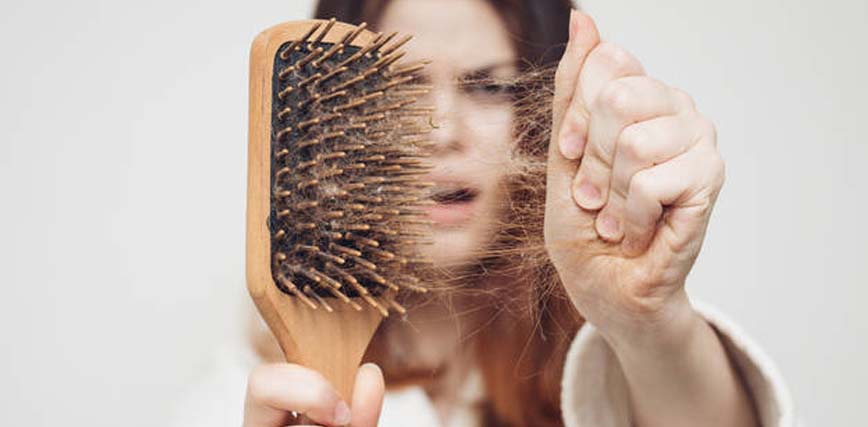Seasonal Hair Loss: What Causes It and How to Prevent It

Hair loss affects both men and women. Stress, exhaustion, sickness, and diet are just a few of the many causes of hair loss. During seasonal transitions, hair loss may be more prevalent than usual. Discover in this post our strategies for combating this phenomenon: seasonal shedding of hair
Do the leaves of the trees and your hair fall at the same time? This transient occurrence, which typically happens in early autumn and spring, is not dangerous but frequently causes concern. Our recommendations for treating seasonal hair loss target the roots.
Daily hair loss is normal: between 50 and 100 hairs are shed from your head daily. To comprehend this phenomenon, it is also essential to comprehend the “hair life cycle.”
Hair Life Cycle
The anagen phase (growth) lasts between 2 and 5 years for men and 5 to 7 years for women, whereas the telogen phase (rest) lasts for 3 months. The hair then falls out as a result of the growth of new hair. Then, a new anagen phase begins.
Alternatively, if you are losing more than 100 hairs per day, have the impression that you are losing more than usual, and your hair is falling out everywhere (pillow, clothes, car headrest), it is time to take care of yourself and find a solution because you may be suffering from seasonal hair loss.
Seasonal Hair Loss Causes
Seasonal hair loss often happens around the beginning of spring and autumn and can be caused by several external factors:
- The effect of the change in daylight hours on our hormones.
- Fatigue, stress, pregnancy, diet (with substantial nutritional deficiencies), emotional stress
- Inappropriate product use. For instance, in the summer, you can use items that are no longer appropriate in the fall, and vice versa.
- The presence of pollutants on the scalp clogs the hair follicles (dandruff, excessive oil production, etc.).
The outcome? The hair struggles to adapt to these changes and begins to fall out.
How Can Seasonal Hair Loss be Prevented?
These tips are recommended by experts to halt hair loss:
- Brush your hair daily • Rinse your hair with cold or tepid water
- Perform self-massage of the scalp to restore microcirculation at the hair follicle level.
Dietary Supplements that Prevent Seasonal Hair Loss
Given the phenomenon, it is advised to consume foods and dietary supplements high in vitamins A, E, F, and B (B4, B5, B6, B8), fatty acids, and trace elements such as copper, iron, and magnesium.
Methionine and cysteine, which are components of keratin, prevent hair loss; arginine promotes hair growth, and glutamine strengthens hair.
Fish, wheat germ powder, eggs, poultry, dark chocolate, legumes, oils (olive, flax, walnuts, etc.), almonds, oysters, spirulina, or soy protein are on the menu. In short, a diet that is nutritious, balanced, and diverse.
What is the Duration of Seasonal Hair Loss?
Not exceeding three months. Hair loss may occur after surgery. In this situation, it is necessary to consult a specialist, preferably a dermatologist, or to visit a clinic specializing in the treatment of hair issues.
See More: 10 Factors That Cause Hair Loss
Follow Top and Trending on Google News and receive the latest alerts and the main news about apps, technology, beauty, entertainment, and all the top 10 related posts.
